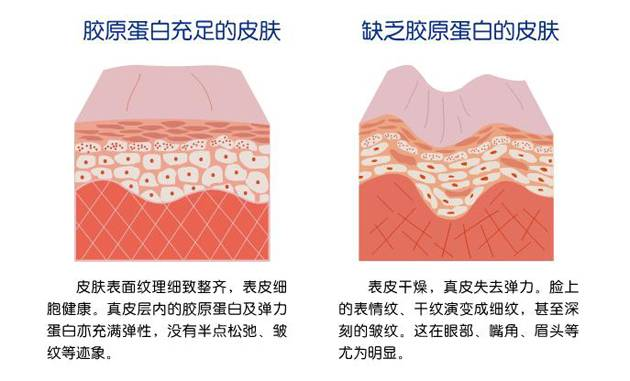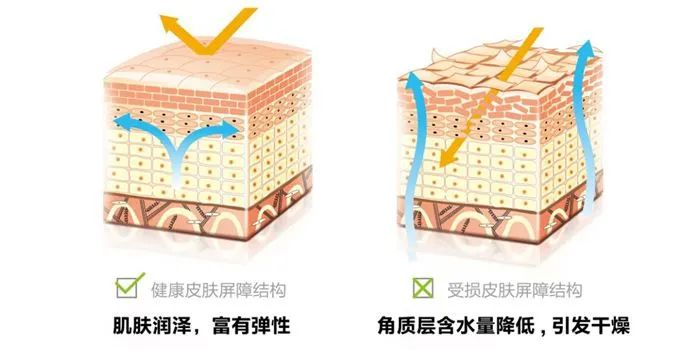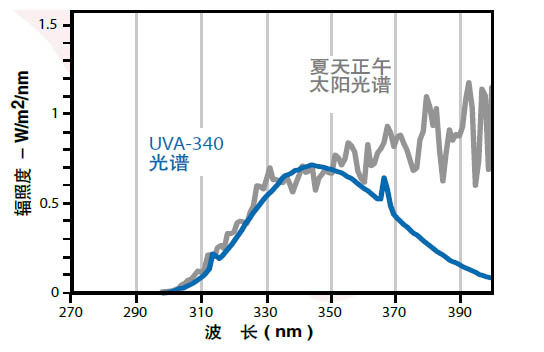How to carry out effective skin care for the elderly
Aging is an inevitable process of physiological change. With the increase of human age, the biochemical regulation ability of macromolecules and cells in human body is continuously reduced, and the function of related organs and tissues is gradually declining. In the skin, the body's largest organ, aging means a decrease in the number and function of keratinocytes and fibroblasts, and a reduction in elastin and collagen synthesis and atrophy. Factors affecting skin aging include endogenous factors: genetic genes, free radicals, endocrine, immune and many other factors, among which genetic genes play a decisive role. Due to genetic differences, the difference in skin aging between different genders and different races.
Exogenous factors, including ultraviolet radiation, smoking, air pollution, etc., are another important factor leading to human skin aging. For example, ultraviolet radiation, long-term exposure to sunlight, human skin will undergo a series of character changes, such as skin wrinkles, capillary dilation, irregular pigmentation, elastic fibrosis and so on. Ultraviolet radiation can lead to the excessive production of reactive oxygen species and the excessive expression of other proteases, leading to a series of reactions such as oxidative stress damage and collagen degradation, making the skin aging day by day.
 With the growth of age, people can clearly and directly observe the gradual aging of the skin. Skin begins to age after middle age, and skin aging is more obvious after the age of 60. The most obvious change is the thinning of skin thickness in sun-exposed areas such as the face and neck, front chest, upper arms, and back of hands, which also increases the risk of sun-induced skin tumors. Secondly, the elasticity of the aged skin decreases and the brittleness increases, the skin loosens and local wrinkles increase, the immune function of the skin decreases, and the ability to resist external viruses, bacteria and fungi weakens. The decrease of oil secretion and water content makes the skin of the elderly more dry and rough, aggravating the damage of barrier function and causing diseases related to the damage of skin barrier function.
With the growth of age, people can clearly and directly observe the gradual aging of the skin. Skin begins to age after middle age, and skin aging is more obvious after the age of 60. The most obvious change is the thinning of skin thickness in sun-exposed areas such as the face and neck, front chest, upper arms, and back of hands, which also increases the risk of sun-induced skin tumors. Secondly, the elasticity of the aged skin decreases and the brittleness increases, the skin loosens and local wrinkles increase, the immune function of the skin decreases, and the ability to resist external viruses, bacteria and fungi weakens. The decrease of oil secretion and water content makes the skin of the elderly more dry and rough, aggravating the damage of barrier function and causing diseases related to the damage of skin barrier function.

 |
The elderly's skin has been exposed to the sun for a long time, and compared with the young people, the skin barrier defense function is reduced, and it is more vulnerable to environmental damage, and it is more necessary to strengthen daily skin care. Therefore, how to effectively develop skin care for the elderly is particularly important. Proper skin care can delay the aging of the skin and make it radiant. Usually, the routine care for the skin needs to follow the three steps of cleaning, moisturizing and sunscreen, and the elderly skin care should also pay attention to anti-aging, whitening, light spots and other effective skin care.
The skin of the elderly is relatively sensitive, less oil secretion, it is recommended to use a gentle cleaning type of facial cleanser, shower gel, you can clean the skin with warm water.
The elderly skin nutrition absorption ability is poor, you can increase the frequency of moisturizing, use more moisturizer, and pay attention to reduce the stimulation of the skin. Nutritional skin care products can slow down the speed of skin aging, and can prevent the loss of skin sebum, water, and maintain the elasticity of the skin. After cleaning the skin, you can apply a neutral emollient or cream to moisturize the skin and lock in the moisture on the skin surface. Sun protection plays an important role in skin care.
Excessive sun exposure can denature dermal tissue, accelerate skin aging, and even induce skin cancer, so you should pay attention to skin protection at any age. In daily life, physical sun protection, such as wearing sunscreen clothing, sun protective clothing, umbrella or sunscreen, etc., are good ways. In addition, to maintain a good attitude, keep enough sleep, pay attention to reasonable diet and nutrition, which are very good for the skin.
 In short, cleaning, moisturizing, sun protection is also the most important content for the elderly to carry out effective skin care. All three are very important steps in your skin care, and you can't do without one. While not stopping the passage of time from leaving its mark on the body, proper skin care can help people maintain healthy, vibrant skin.
In short, cleaning, moisturizing, sun protection is also the most important content for the elderly to carry out effective skin care. All three are very important steps in your skin care, and you can't do without one. While not stopping the passage of time from leaving its mark on the body, proper skin care can help people maintain healthy, vibrant skin.
Author:
Professor Yang Sen Department of Dermatology, The First Affiliated Hospital of Anhui Medical University
(The opinions expressed are solely those of the author. Some pictures in this article are from the Internet, if there is infringement, please contact to delete)

